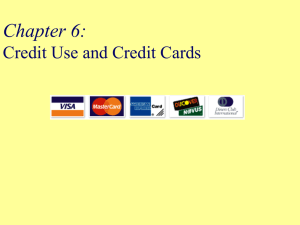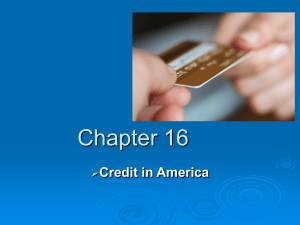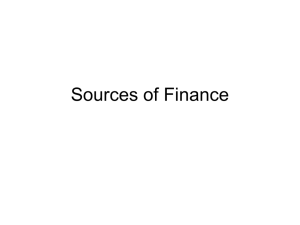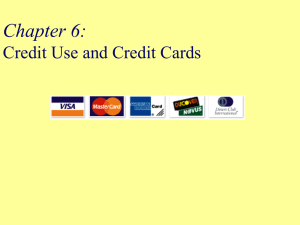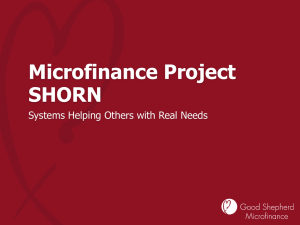REDLG Presentation 012114
advertisement
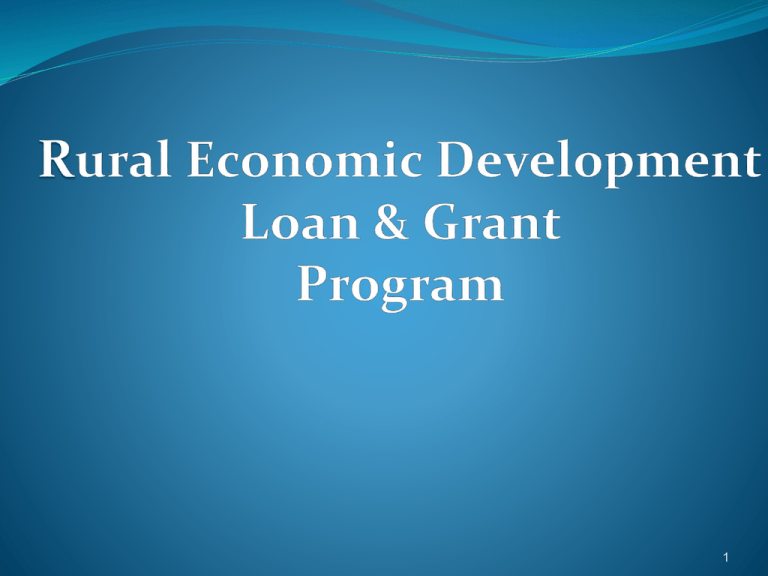
1 Brief History of the REDLG Program A brief history of the program and purpose (1987-to date) The Program was created by Section 313 of the Rural Electrification Act enacted on December 22, 1987 and implemented through regulation, 7 CFR 1703, Subpart B, in 1989. At that time, the program constituted a new “rural development” section of the former Rural Electrification Administration (REA) and frequently this former agency’s name is used to identify both this program and the electric and telephone utilities that have borrowed funds from REA for many years. Now administered under RD Instruction 4280-A 2 History of the REDLG Program cont…. Since inception of the program over $16,000,000 has been invested in Georgia through the REDLG program. Over 2,600 jobs have been created and/or saved and more than 50 businesses have been assisted by the program. 3 Brief History of the REDLG Program cont…. Many Positive Results RUS Borrowers have been successful in promoting economic development through this program. 4 Program Purpose Rural Economic Development Loan (REDL) and Grant (REDG) Programs provide financing to eligible Rural Utilities Service electric or telecommunications borrowers (Intermediaries) Promote rural economic development Promote job creation projects 5 Benefits of Participation Providing access to capital for community and economic development finance Business retention/expansion tool for cooperatives and their communities stimulate economic growth in your region employment retention/creation improve rural development capacity and infrastructure may lead to increased sales 6 RED Loan & Grant Overview ‐ Definitions RUS Eligible Borrower— “Intermediary” Project - “Ultimate Recipient of Funds” REDL - “Rural Economic Development Loan” - a/k/a “Pass Through Loan” REDG - Rural Economic Development Grant” - Grant is to Intermediary (Applicant) - 0% Loan to Project (Ultimate Recipient) Eligible Location - Rural Areas with populations < 50,000 - Priority for areas of under 2,500 and under 1,250 7 Program Types Loans- Up to 2 million for FY 2014 Zero interest loan for up to 10 year term is made to an Intermediary who relends to a preselected borrower (ultimate recipient) at identical loan terms. Grants- Up to 300,000 for FY 2014 Grants are awarded to the Intermediary to establish a Revolving Loan Fund (RLF) to make loans to Ultimate Recipients 8 How REDLG is Funded Loans made to Utilities from Rural Electrification and Telephone Revolving Fund Utilities repay principal and interest to the Fund and may deposit extra into the Cushion of Credit Payments Account The utility earns 5% on its extra deposits. Utilities provide energy and telecommunications The difference between fund earnings, and cushion earnings is deposited to a sub-account. The sub-account funds REDLG 9 Applicant Eligibility The Intermediary must be either: 1. A borrower with an outstanding loan with the Rural Utility Service (RUS) 2. A former borrower of RUS 3. A Utility that was never a borrower of RUS, but would be eligible to become one (municipal electric) 10 Security for REDLG The type of eligible applicant determines the security for the REDL: Current RUS borrower: - Already secured through RUS loan documents Former or otherwise eligible: - Irrevocable Letter of Credit - This letter of credit can come from the Ultimate Recipient and can be assigned to USDA through the Intermediary. 11 How The Process Works The Intermediary has a project that it would like to assist with REDLG funds. The Intermediary determines the credit worthiness of the borrower and the level of security it will require. Rural Development (RD) Staff will not “Re-Underwrite” the file. The Intermediary submits an application to the State Office. RD Staff will provide guidance on process. 12 How The Process Works Cont… The RD staff will process the application and submit to the National Office for funding consideration. The National Office is currently awarding REDLG projects on a monthly basis. Program is currently under subscribed 13 14 REDL or “Pass Through” Loan Intermediary borrows from UDSA RD at 0% interest Intermediary loans to recipient at 0% interest 15 Eligible Uses of Loan Funds Startup venture costs which may include real estate, buildings, equipment, and working capital. Business expansion. Business incubators. Technical Assistance – By a qualified Independent Provider. Project Feasibility Studies - By a qualified Independent Provider. 16 Eligible Uses of Loan Funds Cont… Advanced Telecommunications or computer networks to facilitate medical or educational services or job training. Community Facility type projects, such as hospitals, nursing homes, fire stations, etc. 17 REDLG Ineligible Project Purposes Refinancing or costs incurred prior to the application Residential purposes Conflicts of interests Agricultural production (limited situations) Pass-through grant 18 Supplemental Funds for Loans RED Loans require a minimum of 20% of the loan amount for the Project be provided as supplemental funds The 20% supplemental funding has to be in the form of cash or equivalent RED Loan funds will not exceed 80% of the project cost. May be provided by the Intermediary or the Ultimate Recipient from other sources Expenses incurred prior to date of application cannot be used as supplemental funding. 19 RED Loan Terms Intermediary is strongly advised to obtain security. 0% Interest Loan Up to 10 Year Term Up to 2 year deferment for start-up operations and 1 year for existing, if requested. **NOTE: If requested must be addressed in project narrative and in board resolution Monthly payments match Co-op’s repayment to USDA 20 Multiple RED L&G Awards No Upper Limit to # of applications Multiple awards to same RUS eligible borrower Each project is reviewed independently Multiple Awards to same company / entity Minor scoring implications Bonus points if first time applicant Bonus points if first award for county 21 22 How it Works- Grants RD provides grants to Intermediaries to establish an RLF Initial loans are made from the RLF to a pre-selected local community facility project or other eligible project Subsequent loans from revolved funds can be used for community or economic development projects 23 USDA Grant for Revolving Loan Fund: Initial Loan USDA RD grants to RLF $300,000 Max Intermediary Administered RLF of $360,000 Intermediary matches 20% with own funds $60,000 max 24 Eligible Ultimate Recipients for Initial RLF loans Non-profit entities Public bodies Federally-recognized Indian tribes For Profit businesses with limitations (see RD Instruction 4280-A) 25 Eligible Purposes of Initial RLF Loan Community Development Projects Community Facility Projects Business Incubators Facilities and equipment for education and training to facilitate economic development Medical facilities or equipment Telecom or computer network for medical or educational services or job training 26 Supplemental Funds for REDG The Intermediary must match 20% of the Grant into the fund The contribution may be used to fund the same project that the Agency is funding or another REDLG loan or grant eligible project. 27 USDA Grant for RLF “Initial Loan” Terms Application is submitted on behalf of one or more projects Initial Loan for Community Facility Project Project receives a 0% Interest Loan Up to a 10 Year Term Up to 2 year deferment for start-up operations and 1 year deferment for existing operations, if requested. 28 RLF Operation Basics REVOLVING LOAN FUND PLAN “Serves as Administration rules of RLF” You set the rules (within limits) for your loan fund. RLF plan is approved by RD Must follow RLF Plan (even after the first loan) “Revolved Funds”/Subsequent loans (your RLF) Funds lose federal identity –environmental review not required. Only the first loan must be at 0% interest for 10 years For profit businesses eligible to apply for revolved funds 29 RLF Administration Responsibilities & Limitations Conflicts of Interest, cannot lend to: - Cooperative, it’s Subsidiaries or Affiliates - Board Member or relative - Key Management Staff or relative May lend to non-profit entities when board or key staff serve on the board Cannot limit lending only to customers - Or use that as a reason to say no 30 RLF Administration cont.. Interest & Administrative Fees Interest on “Subsequent Loans” - Allowed to Charge from 0% to WSJ Prime Rate Administrative fee may also be charged Interest paid to RLF increases fund, may not be withdrawn by cooperative Interest may be used for loan making expenses per an annual budget (i.e. loan loss reserve) 1% Annual Administrative Fee - Covers Intermediary Operational Expenses Can be charged on initial 0% loans from RLF and subsequent loans Can be used to offset cost of staff time. 31 Combination Loan and Grant Applications Must meet both Grant and Loan eligibility criteria Submit in applications under one cover, USDA can approve separately Match required for RLF Two separate loans are issued by the Intermediary Works well for Health Care, Education, community projects 32 REDL&G Application • Standard Federal Application Form 424 & Certifications • Board Resolution authorizing & requesting application • Ultimate Recipient Business/Project Plan • Project Description Narrative - • History of Ultimate Recipient • Detail of Project Costs • Detail of Supplement Funds & Status • Specific Purpose for Loan Funds • New / Existing Employment • Loan Terms and Security (collateral) 33 REDL&G Application cont.. • Selection Factors Narrative - Ultimate Recipient’s Legal Structure – Minimum 20% Supplemental Financing – Location of the Project—Rural Area or Benefits to Rural Area –Number & Description of Jobs – Business Plan & Financial Projections – Supporting Information for Scoring Criteria • If Grant/RLF—“RLF Plan” or Draft Administrative Rules 34 Environmental Process Rural Development will conduct a review for the potential of any environmental impacts resulting from the proposed Project Rural Development will inform the Intermediary of any additional information needed and any subsequent environmental requirements necessary for Rural Development to make a finding. Rural Development will conduct all necessary environmental reviews as prescribed in 7 CFR part 1940, subpart G. These reviews must be completed before the application can be considered for approval. If your application is requesting financing for site development, the destruction or alteration of buildings, or other activities that may adversely affect the environment, you should not proceed with construction until you receive notice of environmental clearance from Rural Development. 35 REDLG Scoring Criteria REDL&G Scoring Criteria— Intermediary • First Application for Intermediary? – If yes, add 10 pts • Participate in Cushion of Credit? – Up to 15 points added if • Factor of deposits in C of C in relation to assets • Attach RUS Form 7 to document 36 REDL&G Scoring Criteria— Project Type Nature of Project (up to 20 points for each) 1. For profit business, business incubator, industrial building or park, infrastructure (streets or utilities) 2. Provides Technical Assistance to rural businesses or residents, educates or provides medical care to rural residents 3. Enhances rural development by providing advanced telecomm services/computer networks for medical, educational and/or job training. Evaluated on applications “Technology Plan” 37 REDL&G Scoring Criteria— Project Type Jobs Created/Saved within 3 years – Evaluated by number of jobs per $100,000 of total project cost • Greater than 5 jobs/$100,000 = 25 points • 1‐5 jobs/$100,000 = 15 points • < 1 job /$100,000 = 0 points 38 REDL&G Scoring Criteria— Project Type Supplemental Funds‐‐Leverage – Evaluated by % = (Project Cost‐REDLG Amt) REDL&G Amt • % Greater than 200% = 20 points • From 100% to 200% = 10 points • From 50% to < 100% = 5 points 39 REDL&G Scoring Criteria— Location Rural Area – Population 1,249 or less 20 points – Population 1,250 to 2,500 10 points – Population > 2,500 0 points Population Decline—(1990‐2000) – If yes, 10 points First REDL&G for County? – If yes, 10 points 40 REDL&G Scoring Criteria— Location Demographics—County comparison to State / National – Unemployment Rate Up to 25 points – Per Capita Personal Income Up to 25 points http://www.bea.gov/bea/regionalbearfacts/countybf/cfm 41 REDL&G Scoring Criteria— Ultimate Recipient Complete Business/Project Plan (Up to 15 points) – Description – Management – Products – Marketing Financial Plan (Up to 20 points) Demonstrates Repayment Ability – 3 Years Historical Financials – Year to Date Income Statement & Balance Sheet – 3 Years Projected Income Statement, Balance Sheet, Cash Flow 42 REDL&G Scoring Criteria— State Discretionary Points (5 pts each) 1. Located in – Rural Empowerment Zone – Rural Economic Area Partnership Zone – Rural Enterprise Community – Champion Community 2. Major employer closing in last 3 years resulting in 2% increase in unemployment rate 3. Located in county with chronic or long-term economic deterioration 4. Presidential Disaster Declaration 5. Consistent with State RD’s approved strategic plan 43 REDL&G Scoring Criteria— Summary of Key Factors • Support the program – Participate in Cushion of Credit • Type of Project – Business Expansion with good job training / new technology (pass through loan) – Medical Facility (grant or loan if job creation) – Educational Facility (grant or loan if job creation) – Job Creation/Retention (higher priority for loan) 44 REDL&G Scoring Criteria— Summary of Key Factors • Project Located in Rural Area – Communities of under 2,500 • Complete Business Plan & Financials – From the project, plus your analysis • Demographic Trends – Population Loss – Higher Unemployment Rate than state or nation – Per Capita Income Levels documented 45 Questions & Discussion 46



